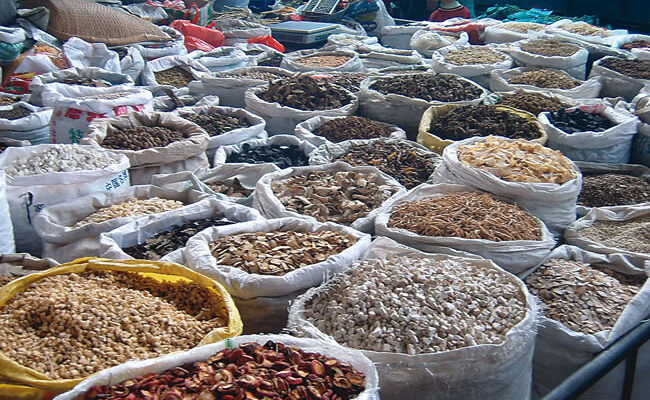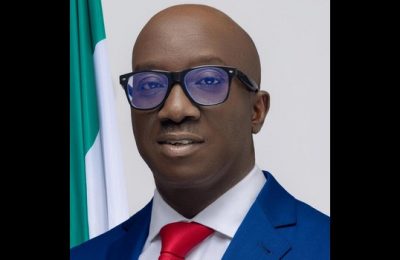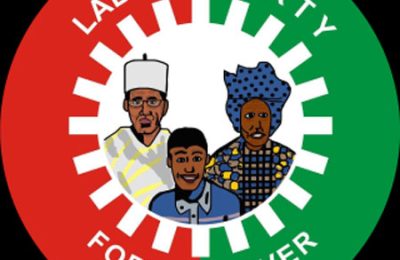EXPERTS, in a new, study said that the use of traditional medicine was associated with higher blood pressure, more severe hypertension and more complications in Sub-Saharan African countries.
They said the widespread use of traditional medicine needed to be acknowledged and worked out to integrate traditional medicine safely within conventional healthcare.
In a study, researchers associated traditional medicines use with control of hypertension to a 3.87 mm Hg higher pressure (systolic (SBP) and 1.75 mm Hg higher DBP diastolic (DBP) compared with no use.

In addition, there was a more excellent odd of severe hypertension and of any hypertension complication, mainly driven by kidney complications after adjusting for possible factors that could be causing the results seen in the study.
This is the first cross-country study that describes the proportion of traditional medicine use, the profile of users and the health status associated with conventional medicine in patients with hypertension in 12 sub-Saharan African countries. The 2022 study was published in British Medical Journal (BMJ) Global Health.
The researchers used data on 2128 hypertensive patients of a cross-sectional study who attended cardiology departments of 12 sub-Saharan African countries between January 2014 and November 2015. These are Benin, Cameroon, Congo, Democratic Republic of the Congo, Gabon, Guinea, Côte d’Ivoire, Mauritania, Mozambique, Niger, Senegal and Togo.
In each participating hospital, patients with a hypertension diagnosis, aged 18 years or older were eligible to participate and enrolled during outpatient consultations, in the cardiology departments of the participating hospitals.

According to the study, self-reported use of traditional medicine in patients with hypertension was common and varied drastically from 10 percent in Congo to 48 percent in Guinea.
In addition, traditional medicine users were more likely to be male, with poor treatment adherence, to report missing treatment because of its cost, and to have severe hypertension and complications of hypertension.
The researchers declared, “we find that on average one-quarter of patients with hypertension in 12 sub-Saharan countries report using traditional medicine, with large variations across countries. The results show that traditional users presented worse hypertension profiles and complications, independent of age, sex, country, wealth and treatment adherence.
“Non-compliant hypertensive patients were more likely to seek complementary medicine. An implication of this is that, beyond advocating for regulation, accessibility and affordability of drugs for chronic diseases in all communities, efforts should be made by healthcare professionals to communicate the importance of treatment adherence to patients, and have open discussions on the use of traditional medicine.
“Because hypertension is usually asymptomatic for many years, health-seeking is lower and long-term treatments can be perceived as a useless burden if one is apparently in good health. Also, psychosocial variables, such as the belief that hypertension is due to supernatural causes are important determinants of traditional medicine use.”
Previous studies in patients with hypertension from Nigeria, Ghana, Ethiopia, Uganda and South Africa report a prevalence of use, alone or in combination with ‘modern’ medicine, between 20% and 68%. More importantly, there has been little work on the actual efficacy of traditional medicine in the management and control of hypertension.
The rise in the incidence of hypertension since 1990 has been particularly striking in sub-Saharan Africa, where it is still predominantly undiagnosed (52 percent of women, 66 percent of men), uncontrolled and not treated, with only 13 percent of women and 9 percent of men estimated to have controlled hypertension in sub-Saharan Africa.
When uncontrolled, hypertension can have an array of complications, including stroke, ischaemic heart disease, kidney and heart failure.
The use of traditional medicine is widespread in sub-Saharan Africa as a treatment option for a wide range of diseases, including for the management of hypertension. Meanwhile, there is a growing interest in evaluating the potential beneficial role of traditional medicine use in the management of chronic diseases, as it has been recognised as a potential solution in contexts of limited access to essential health services.
YOU SHOULD NOT MISS THESE HEADLINES FROM NIGERIAN TRIBUNE
PICTORIAL EXPLAINER: How To Identify Fake New Naira Notes
The Central Bank of Nigeria (CBN) has released security features to help identify fake new naira notes. According to CBN’s template, the Security features to look out for are the following…
Ondo Councils’ Workers Shut Down Assembly Over LG Autonomy
LOCAL government workers under the aegis of Nigeria Union of Local Government Employees (NULGE), Ondo, on Tuesday, stormed the State House of Assembly, threatening a showdown with the lawmakers over the signing of local government autonomy…
FG To Discontinue Cash Withdrawal From Public Accounts
The Federal Government is putting the final touches to all necessary measures to stop cash withdrawal from federal, state, and local government accounts. The Director/Chief Executive Officer of the Nigerian Financial Intelligence Unit (NFIU), Modibbo Hamman Tukur, revealed…
Reps Probe Crude Oil Sales Over $2.4bn Revenue Loss
The House of Representatives on Tuesday unveiled plans to investigate the allegation bothering on the alleged loss of over $2.4 billion in revenue accruing from the illegal sale of 48 million barrels of crude oil export from 2014 till date…
Emefiele/DSS Tango: Falana Asks Judiciary To Treat Civil Liberty Cases Equally
LEADING rights lawyer, Mr. Femi Falana, on Tuesday addressed the controversial move by the nation’s secret police to arrest and detain the embattled Governor of the Central Bank of Nigeria (CBN), Godwin Emefiele…
EDITORIAL: CBN’s New Cash Withdrawal Limits
As a follow-up to its redesign of the N200, N500, and N1000 banknotes, the Central Bank of Nigeria (CBN) recently announced a new policy that mandates deposit money banks and other financial institutions to ensure that…







